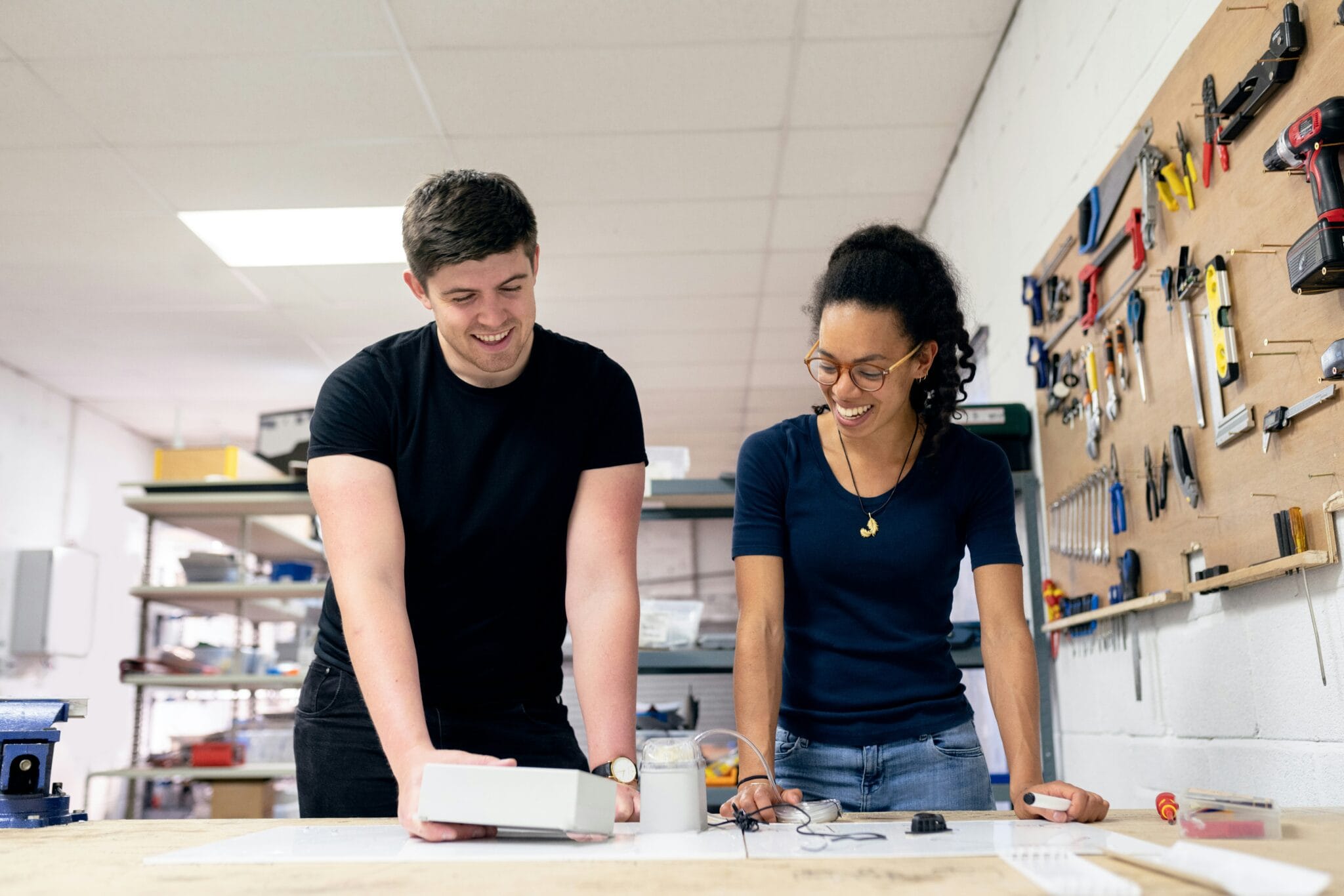The Power of Love and Life when Iron Sharpens Iron

Understanding Proverbs 27:17: The Meaning Behind the Metaphor
Proverbs 27:17 states, “As iron sharpens iron, so one person sharpens another.” This metaphor, deeply rooted in historical and cultural contexts, offers profound insights into relationships and personal development. The proverb illustrates the dynamic interplay between individuals who encourage and challenge one another to enhance their personal and spiritual growth. In ancient times, iron was a commonly used material, particularly in tools and weaponry; its ability to sharpen when in contact with another piece of iron serves as a powerful metaphor for human interaction.
In the scriptural context, the wisdom literature often emphasizes the importance of community and interpersonal relationships. The Hebrew word for “sharpens” suggests a process that involves friction but ultimately leads to improvement. This notion conveys that individuals often grow through constructive challenges posed by peers, akin to the way iron blades are refined through interaction. The essence of mutual growth, illustrated in this proverb, underscores that relationships should foster enhancement rather than stagnation.
Biblical scholars have interpreted this verse in various ways, emphasizing its application to friendships, mentorship, and communal interactions. The proverb suggests that faithful companions play a crucial role in one another’s lives, acting as catalysts for growth and understanding. In a world that often emphasizes individualism, this teaching reminds believers of the importance of surrounding themselves with those who will spur them towards greater integrity, wisdom, and moral fortitude.
Ultimately, the message conveyed in Proverbs 27:17 transcends mere friendship; it embodies a deep-seated communal ethos. The act of sharing insight, debating ideas, and holding each other accountable serves as a vital mechanism for personal and spiritual betterment, thus reinforcing the idea that thriving relationships are foundational to one’s journey towards growth and maturity.
The Importance of Relationships in Personal Growth
Relationships form the bedrock of personal development. Engaging with others allows individuals to gain valuable insights into their own strengths and weaknesses. When we interact with friends, family, coworkers, or mentors, we engage in a process of reflection and evaluation that can highlight areas needing improvement as well as those that are already well-developed. These relationships act as mirrors, revealing facets of our character that we may not readily see.
Accountability is another crucial component of personal growth that is fostered through relationships. When we share our goals and ambitions with close associates, we cultivate a network that holds us accountable for our progress. The presence of someone who encourages us to stay committed enhances our chances of success. For instance, a study group can motivate its members to keep up with their studies, while a workout buddy can inspire consistency in exercising. In these scenarios, the relationship forms a safety net, creating an environment conducive to growth.
Furthermore, constructive feedback is an essential ingredient contributed by relationships. Friends and mentors are often positioned to provide insights that may challenge our perspective and provoke self-reflection. For example, a mentor guiding an employee can help to identify skills that need enhancement, leading to professional development and advancement. The ongoing dialogue that occurs within these relationships can foster resilience, adaptability, and a deeper understanding of one’s potential.
The significance of friendships and mentorships cannot be overstated; they have the power to catalyze change and inspire individuals to reach new heights. Personal growth is rarely a solitary journey; it is enriched by the myriad interactions we experience with others. Cultivating strong, supportive relationships can ultimately lead to a more fulfilling and successful life.
Building Meaningful Connections: How to ‘Sharpen’ One Another
In the pursuit of personal growth and development, the significance of nurturing meaningful connections cannot be overstated. The concept of “iron sharpening iron” is a profound metaphor that underscores the value of relationships that stimulate growth and challenge individuals to become better versions of themselves. To cultivate such relationships, several key practices can be adopted.
Firstly, fostering open communication is essential. This involves not only expressing one’s thoughts and feelings candidly but also creating an environment where others feel safe to share their perspectives. Open dialogue encourages trust and understanding, which are foundational for any relationship that aims to enhance mutual growth. By regularly engaging in honest conversations, individuals can address misunderstandings promptly and support one another in their journeys.
Additionally, engaging in active listening is a crucial component of this process. Listening attentively to others not only demonstrates respect but also allows for deeper connections to form. When individuals feel heard, they are more inclined to share their vulnerabilities, fostering a space conducive to growth. Practicing active listening requires mindfulness and a willingness to put aside one’s own thoughts temporarily to truly understand another’s viewpoint.
Moreover, setting shared goals can significantly enhance the sharpening dynamic within relationships. When individuals work towards common objectives, they inherently motivate one another and hold each other accountable. This collaborative effort not only strengthens bonds but also encourages a culture of encouragement, where individuals celebrate each other’s achievements, big or small.
Furthermore, surrounding oneself with the right influences is paramount. Engaging with individuals who embody positive traits and constructive values fosters an environment where personal development thrives. Supportive friendships and networks can greatly impact one’s growth trajectory, reinforcing the notion that the company one keeps is instrumental in the journey towards self-improvement.
By implementing these strategies, individuals can effectively engage in the practice of sharpening one another, thus fostering growth and transformation in their lives and communities.
Challenges and Misunderstandings in Relationships
Relationships built on the principle of “iron sharpening iron” are often seen as beneficial in fostering personal growth and mutual improvement. However, they can also come with significant challenges and potential misunderstandings that must be addressed for such relationships to thrive. One of the primary challenges is conflict resolution. When individuals work closely together, differing opinions and methodologies can lead to disagreements. It is essential for both parties to approach conflicts with an open mind and a willingness to engage in constructive dialogue. Effective communication skills are vital in ensuring that the focus remains on problem-solving rather than personal attacks.
Another area that often leads to misunderstandings is handling criticism. While constructive feedback is a critical component of personal and relational growth, it can sometimes be perceived as a personal affront. It is important for individuals to be receptive to feedback and to differentiate between constructive criticism and negativity. This differentiation can help in nurturing a supportive environment where both parties feel safe to express their opinions and learn from one another. To facilitate this process, it is advisable to establish ground rules for feedback that prioritize respect and encourage growth.
Recognizing negative influences in a relationship is another critical aspect to consider. While close relationships ideally contribute positively to one’s development, there are instances where they might hinder progress. Being able to identify when a relationship becomes toxic or counterproductive is key to maintaining a healthy dynamic. Both individuals must remain committed to growth and be willing to disentangle from influences that undermine their development. Strategies such as setting boundaries, engaging in open discussion about one’s feelings, and reassessing the relationship dynamics can help in overcoming these obstacles. Ultimately, forging strong relationships that sharpen one another requires unwavering commitment, clarity, and mutual respect.




Leave a Reply
You must be logged in to post a comment.